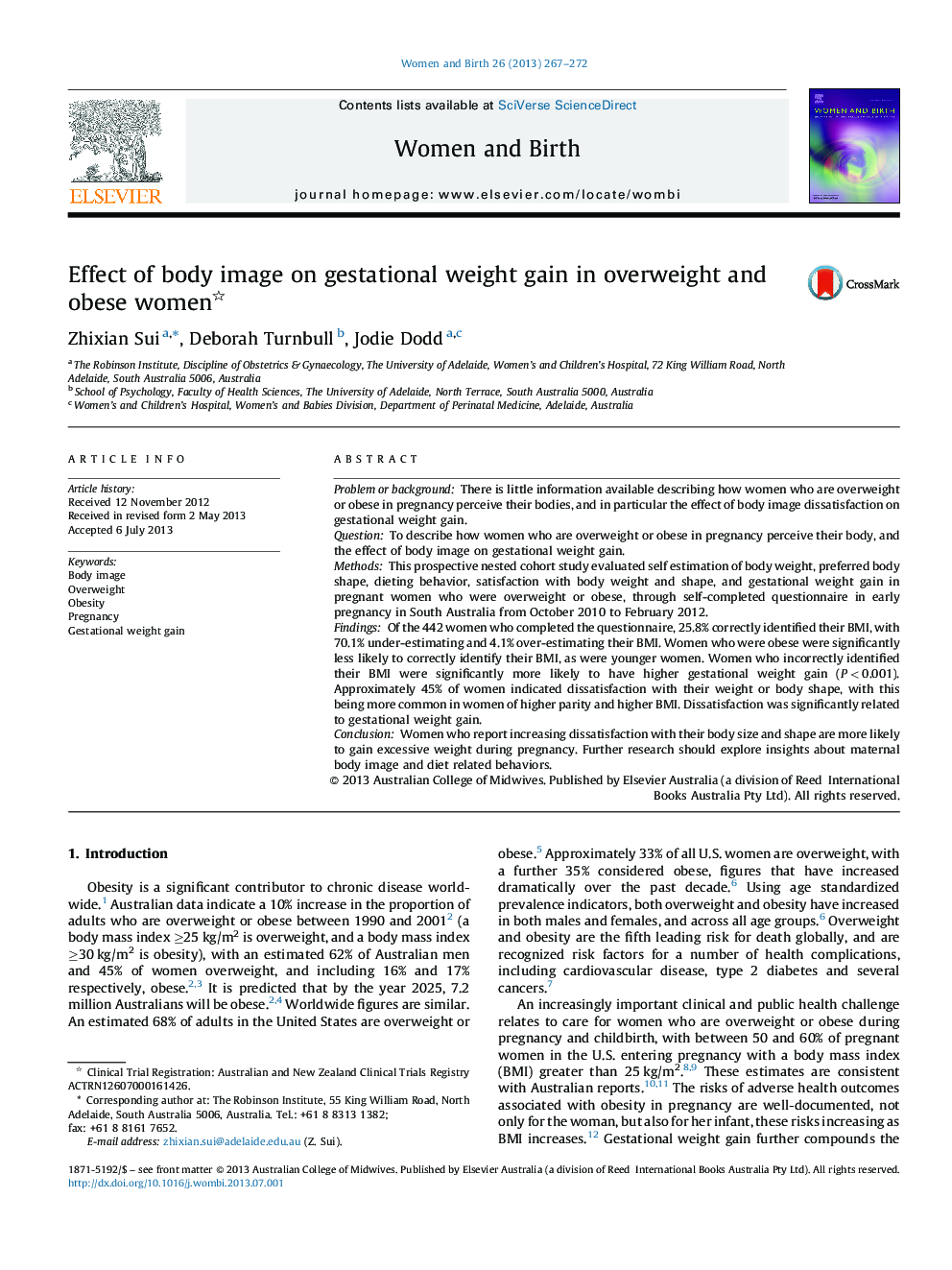| Article ID | Journal | Published Year | Pages | File Type |
|---|---|---|---|---|
| 2636152 | Women and Birth | 2013 | 6 Pages |
Problem or backgroundThere is little information available describing how women who are overweight or obese in pregnancy perceive their bodies, and in particular the effect of body image dissatisfaction on gestational weight gain.QuestionTo describe how women who are overweight or obese in pregnancy perceive their body, and the effect of body image on gestational weight gain.MethodsThis prospective nested cohort study evaluated self estimation of body weight, preferred body shape, dieting behavior, satisfaction with body weight and shape, and gestational weight gain in pregnant women who were overweight or obese, through self-completed questionnaire in early pregnancy in South Australia from October 2010 to February 2012.FindingsOf the 442 women who completed the questionnaire, 25.8% correctly identified their BMI, with 70.1% under-estimating and 4.1% over-estimating their BMI. Women who were obese were significantly less likely to correctly identify their BMI, as were younger women. Women who incorrectly identified their BMI were significantly more likely to have higher gestational weight gain (P < 0.001). Approximately 45% of women indicated dissatisfaction with their weight or body shape, with this being more common in women of higher parity and higher BMI. Dissatisfaction was significantly related to gestational weight gain.ConclusionWomen who report increasing dissatisfaction with their body size and shape are more likely to gain excessive weight during pregnancy. Further research should explore insights about maternal body image and diet related behaviors.
